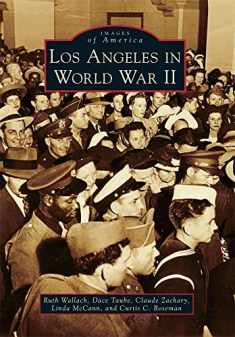
Rosie the Riveter in Long Beach (Postcards of America: California)
Book details
Summary
Description
During World War II, an unprecedented number of women
took jobs at aircraft plants, shipyards, munitions factories, and other concerns across the nation to produce material essential to winning the war. Affectionately and collectively called "Rosie the Riveter" after a popular 1943 song, thousands of these women came to the U.S. Army-financed Douglas Aircraft Plant in Long Beach, the largest wartime plane manufacturer, to help produce an astonishing number of the aircraft used in the war. They riveted,
welded, assembled, and installed, doing man-sized jobs, making attack bombers, other war birds, and cargo transports. They trained at Long Beach City Schools and worked 8- and 10-hour shifts in a windowless, bomb-proof plant. Their children attended Long Beach Day Nursery, and their households ran on rations and victory gardens. When the men came home after the war ended, most of these resilient women lost their jobs.


We would LOVE it if you could help us and other readers by reviewing the book
Book review




